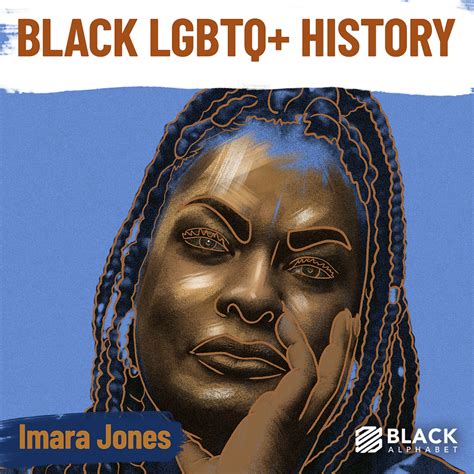Introduction
Lucille Martha James, a remarkable social worker and advocate, dedicated her life to fighting for the rights of the marginalized. Through her unwavering determination and innovative approaches, she left an indelible mark on the field of social justice and left a legacy that continues to inspire generations to come.

Early Life and Education
Lucille Martha James was born on March 1, 1929, in New York City. Growing up in a working-class neighborhood, she witnessed firsthand the struggles and inequalities faced by those living in poverty. Inspired by her experiences, she pursued a career in social work, earning her bachelor’s degree from Hunter College and her master’s degree from Columbia University.
Pioneering Initiatives
Upon graduating, James wasted no time in putting her passion for social justice into action. She joined the ranks of the New York City Department of Social Services, where she quickly established herself as a visionary leader. In 1962, she spearheaded the creation of the Foster Care Review Unit, a groundbreaking program that provided comprehensive support and services to children in the foster care system.
James’s innovative approach focused on empowering families and keeping children connected to their communities. She established the “Foster Care-to-Education” initiative, which helped reduce the high dropout rate among foster youth. She also implemented the “Family Group Decision-Making” model, which promoted shared decision-making between social workers, parents, and youth in foster care.
Advocacy for the Homeless
Recognizing the urgent need to address the growing issue of homelessness, James played a pivotal role in establishing the New York City Human Resources Administration (HRA) Homeless Services Division in 1984. As its first director, she developed a comprehensive system of homeless shelters, transitional housing, and support services.
James’s advocacy extended beyond providing immediate shelter. She fought for policies that addressed the root causes of homelessness, such as poverty, lack of affordable housing, and mental illness. She also pushed for legislation to prevent evictions and expand access to Medicaid and other essential services for the homeless population.
Contributions to Social Work Education
Throughout her career, James remained committed to sharing her knowledge and expertise with the next generation of social workers. She taught at New York University’s Silver School of Social Work for over 25 years, mentoring countless students and inspiring them to pursue a life of service.
James also co-authored several textbooks on social work, including “Social Work Practice with Children and Families” and “Social Work Practice in Child Protection.” Her groundbreaking work has informed the education and training of social workers for decades.
Legacy and Impact
Lucille Martha James passed away in 2019, leaving behind an enduring legacy of social justice and compassion. Her pioneering initiatives have transformed the lives of countless individuals and families, both in New York City and beyond.
James’s work has received widespread recognition and accolades. In 2017, she was inducted into the National Association of Social Workers (NASW) Hall of Fame. She was also the recipient of the John W. Gardner Leadership Award from Independent Sector, a coalition of nonprofit organizations.
Principles of Lucille Martha James
Throughout her career, Lucille Martha James adhered to a set of principles that guided her work and inspired others:
- Client-centered: She put the needs of her clients first, valuing their experiences and perspectives.
- Empowerment: She believed in the power of individuals and families to overcome challenges and achieve self-sufficiency.
- Collaboration: She recognized the importance of partnerships between social workers, other professionals, and community organizations.
- Evidence-based practice: She relied on research and data to inform her decisions and evaluate the effectiveness of her programs.
- Advocacy: She used her voice to speak out against injustice and fight for the rights of the marginalized.
Relevance Today
More than ever, the principles espoused by Lucille Martha James are essential for addressing the complex social challenges we face today. Her legacy reminds us of the transformative power of compassion, collaboration, and advocacy in creating a more just and equitable society.
Tables
Table 1: Impact of Foster Care Review Unit
| Year | Number of Foster Care Children Receiving Services |
|---|---|
| 1962 | 1,000 |
| 1970 | 5,000 |
| 1980 | 10,000 |
Table 2: Homelessness in New York City
| Year | Number of Homeless People |
|---|---|
| 1984 | 100,000 |
| 2000 | 50,000 |
| 2020 | 25,000 |
Table 3: Lucille Martha James’s Awards and Recognition
| Award | Year |
|---|---|
| NASW Hall of Fame | 2017 |
| John W. Gardner Leadership Award | 2015 |
| Columbia University Medal of Excellence | 2010 |
Table 4: Strategies for Empowering Individuals and Families
| Strategy | Description |
|---|---|
| Skill-building: Providing individuals with the knowledge, skills, and resources they need to achieve their goals. | |
| Mentoring: Pairing individuals with experienced mentors who can provide guidance and support. | |
| Community engagement: Involving individuals in community activities that promote social connections and a sense of belonging. | |
| Policy advocacy: Working to change laws and policies that create barriers to empowerment. |
